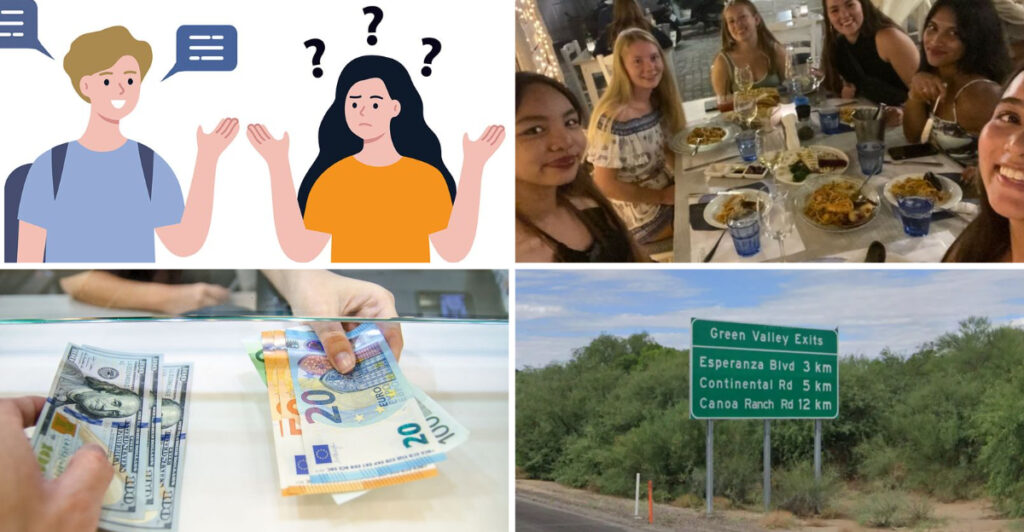Traveling is an enriching experience, yet certain aspects can be frustrating. Here’s a look at 20 things that often frustrate American travelers when venturing abroad.
1. Language Barriers

Navigating a foreign country can become a real adventure when language barriers arise. Many Americans feel overwhelmed when faced with signs, menus, or train schedules in languages they don’t understand. The feeling of being lost in translation is common, adding layers of complexity to what might otherwise be a straightforward task.
Finding someone who speaks English can be both a relief and a challenge. While it might lead to memorable encounters, it can also be frustrating when misunderstanding persist.
Learning a few key phrases beforehand can significantly ease the frustration, making interactions smoother and more enjoyable.
2. Cultural Differences

Cultural differences can be both fascinating and challenging. Many Americans find themselves thrown off by customs that don’t align with their own. Simple gestures, dining etiquette, or even queueing systems can vary greatly.
This discrepancy can lead to awkward moments or even offense if not navigated carefully. Yet, these differences offer a chance to learn and grow.
Embracing these variations with an open mind can turn potential frustrations into opportunities for richer experiences and understanding.
3. Currency Exchange

Handling foreign currency can be perplexing. Many Americans struggle with converting prices mentally, especially when the exchange rate is unfavorable.
The unfamiliarity of coins and notes adds another layer of complexity. Mistakes can be costly, and the fear of overpaying looms large.
Using digital tools or apps to track conversions can be a lifesaver, making purchases less stressful and ensuring that travelers stay within their budget while exploring new destinations.
4. Metric System Confusion
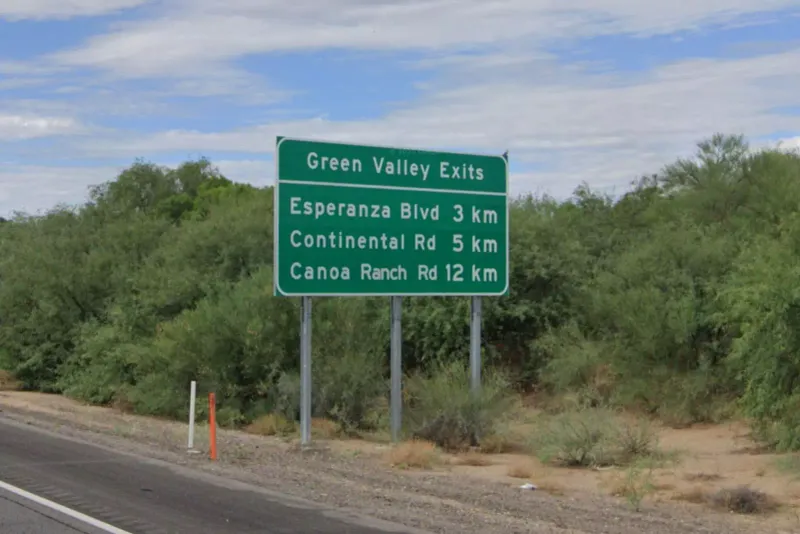
The metric system can baffle American travelers who are accustomed to miles, pounds, and gallons. Encountering kilometers, liters, and kilograms can create confusion, especially when driving or shopping.
This lack of familiarity may lead to errors, such as speeding or purchasing incorrect amounts. However, it also presents a unique opportunity to embrace a global standard.
Adapting to this system may take time, but it can enhance one’s understanding of international norms and practices, making travel more enjoyable.
5. Jet Lag
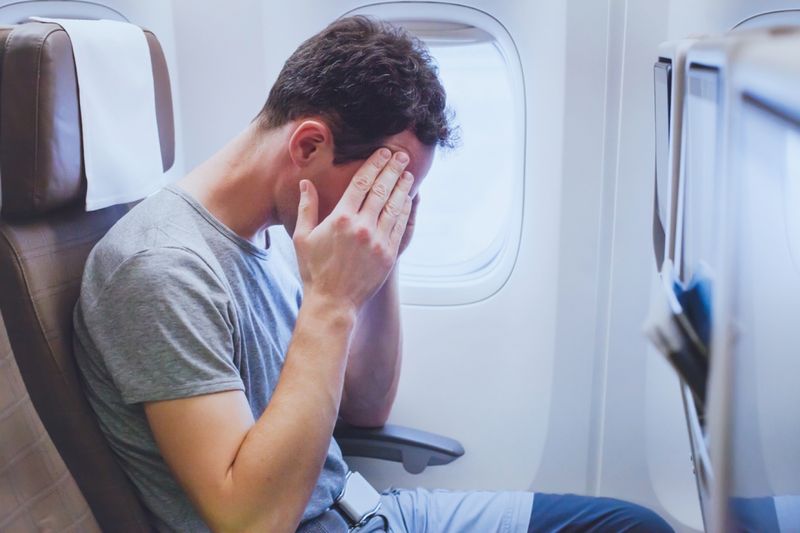
Jet lag is the traveler’s nemesis, leaving many Americans feeling groggy and disoriented. Crossing time zones wreaks havoc on the body’s internal clock, leading to sleepless nights and sluggish days.
This disruption can turn sightseeing into a chore rather than a pleasure, impacting the enjoyment of new experiences. Strategies like adjusting sleep schedules beforehand or staying hydrated can mitigate the effects.
Despite its challenges, overcoming jet lag can make the journey smoother, allowing travelers to fully immerse themselves in their new surroundings.
6. Tipping Etiquette

Tipping etiquette varies around the world, leaving many Americans puzzled. In countries where tipping is not customary, offering extra money might be misconstrued or even offensive.
Conversely, in places where tipping is expected, failing to do so can reflect poorly on travelers. This uncertainty can make dining experiences stressful, overshadowing the joy of exploring local cuisine.
Researching tipping customs before traveling can help avoid awkward situations and ensure that interactions remain pleasant and respectful.
7. Security Checks
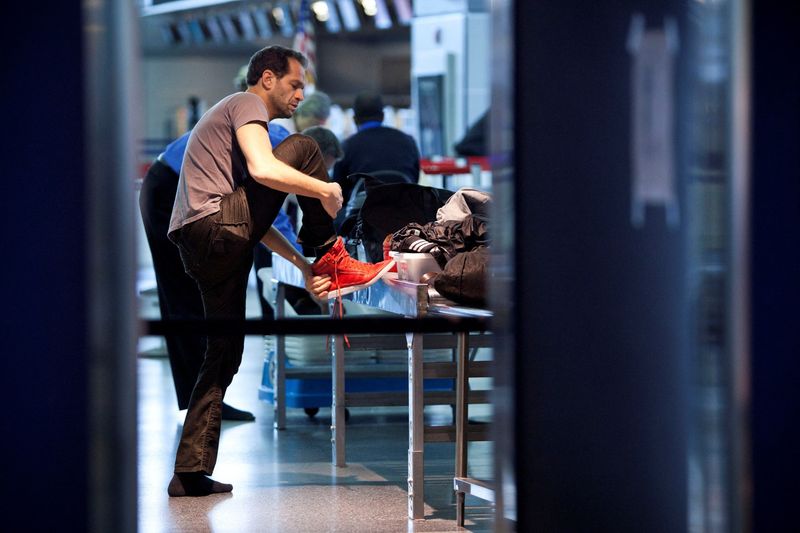
Airport security checks can be a source of frustration for American travelers. Long lines, removing shoes, and strict regulations make the process tedious and time-consuming.
While these measures are intended to ensure safety, they often feel invasive and stressful. The unpredictability of security protocols in different countries only adds to the confusion.
Preparing mentally and arriving early can alleviate some of the stress, helping to ensure a smoother journey.
8. Power Adapter Hassles
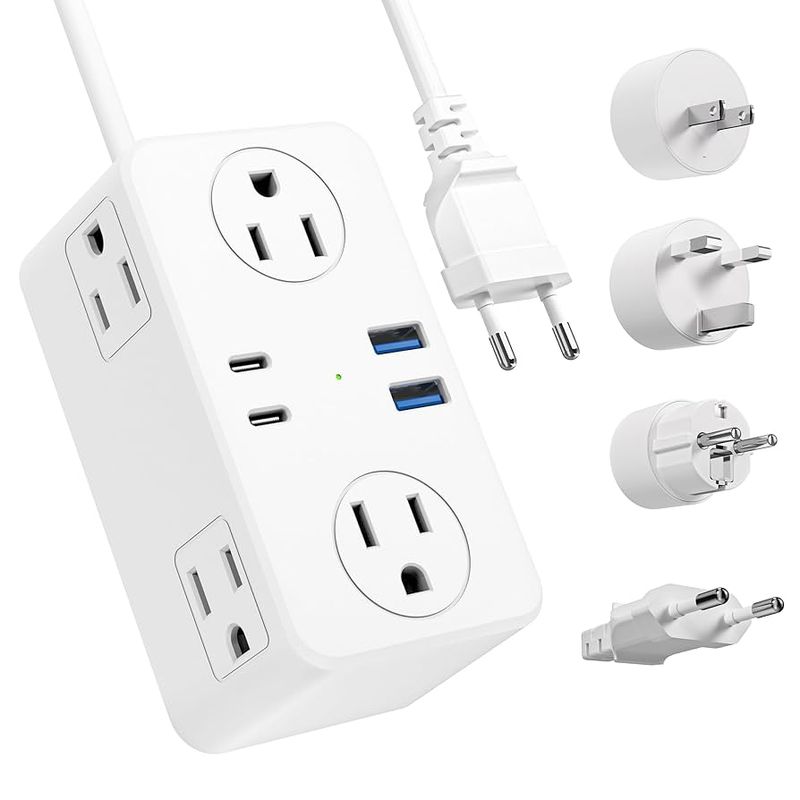
Power adapters can be a constant headache for Americans traveling abroad. Different plug types and voltages mean that charging devices becomes a puzzle.
Forgetfulness or lack of a suitable adapter can leave travelers disconnected and frustrated. This small detail often causes more inconvenience than expected, disrupting routines and plans.
Investing in a universal adapter or researching power requirements beforehand can prevent such mishaps, ensuring that travelers remain powered up and connected.
9. Lack of Personal Space

The concept of personal space varies worldwide, and many Americans find themselves uneasy in crowded places. Public transport, bustling markets, and small accommodations can feel claustrophobic.
This discomfort can lead to anxiety, overshadowing the excitement of exploring new places. Adjusting expectations and understanding cultural norms can help ease the transition.
Finding quieter spots or times to explore can also provide respite, allowing travelers to recharge and enjoy their journey fully.
10. Unfamiliar Toilets

Encountering unfamiliar toilets is a common complaint among American travelers. Differences in design, flushing mechanisms, and symbols can lead to confusion and discomfort.
These unexpected surprises can disrupt travel plans, especially if public facilities are scarce. Embracing these differences as part of the adventure can make the experience more enjoyable.
Researching ahead or asking locals for guidance can provide clarity and confidence, turning potential obstacles into intriguing discoveries.
11. Limited Internet Access
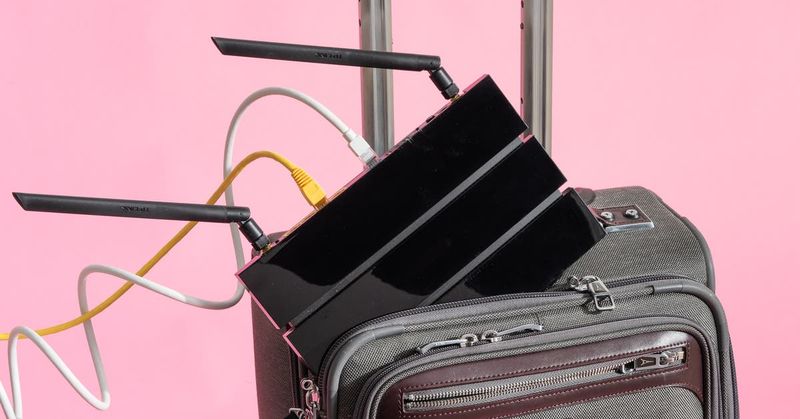
In a world dominated by connectivity, limited internet access can be a major frustration for Americans traveling abroad. Whether navigating city streets or sharing travel updates, reliable Wi-Fi is often a necessity.
When access is restricted or slow, feelings of isolation and inconvenience can arise. However, this limitation can also encourage travelers to be present and engaged.
Embracing offline moments and planning ahead with maps or guides can turn this frustration into an opportunity for deeper connection with the surroundings.
12. Different Driving Rules
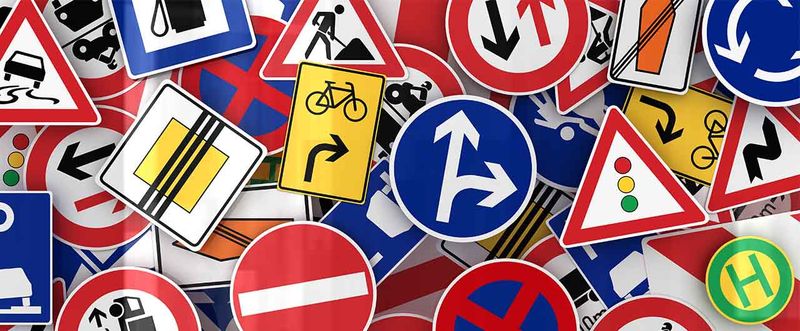
Driving rules that differ from those in the U.S. can perplex American travelers. Left-hand driving, unfamiliar road signs, and diverse traffic laws create challenges for those behind the wheel.
Such differences can lead to mistakes or accidents if not carefully navigated. Understanding local driving customs before hitting the road can alleviate stress.
Renting a car equipped with GPS or consulting with locals can also provide valuable insights, ensuring a safer and more enjoyable driving experience.
13. Overcrowded Tourist Spots

Overcrowded tourist attractions often disappoint American travelers seeking unique experiences. Iconic landmarks teeming with visitors can impede enjoyment and photo opportunities.
The hustle and bustle detract from the wonder of these sites, leading to frustration and fatigue. Seeking alternative times or lesser-known attractions can provide a more fulfilling visit.
By venturing off the beaten path, travelers can discover hidden gems and enjoy a more personalized adventure.
14. Pickpockets and Scams
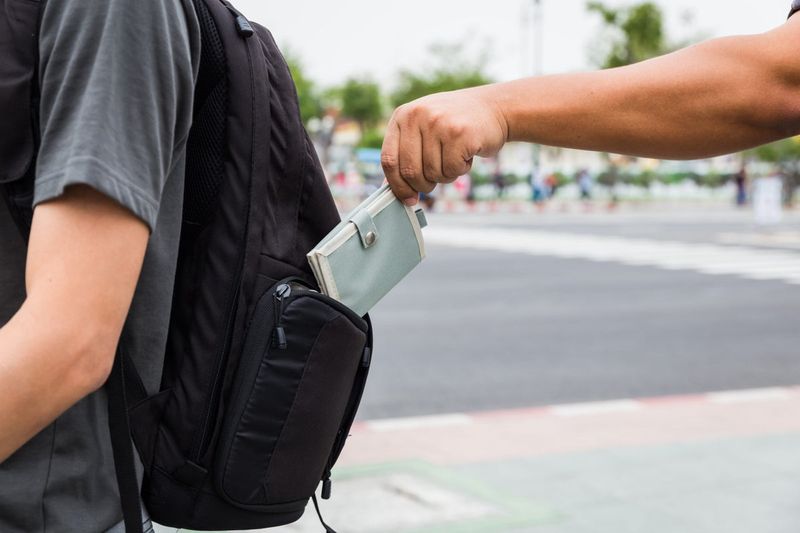
Fear of pickpockets and scams is a constant concern for Americans exploring new places. The anxiety of falling victim to theft can overshadow the joy of travel.
Remaining vigilant and informed about common scams can reduce this risk. Simple measures, such as securing belongings and blending in, enhance safety.
By staying aware and cautious, travelers can focus on the positive experiences, making memories without worry.
15. Weather Surprises
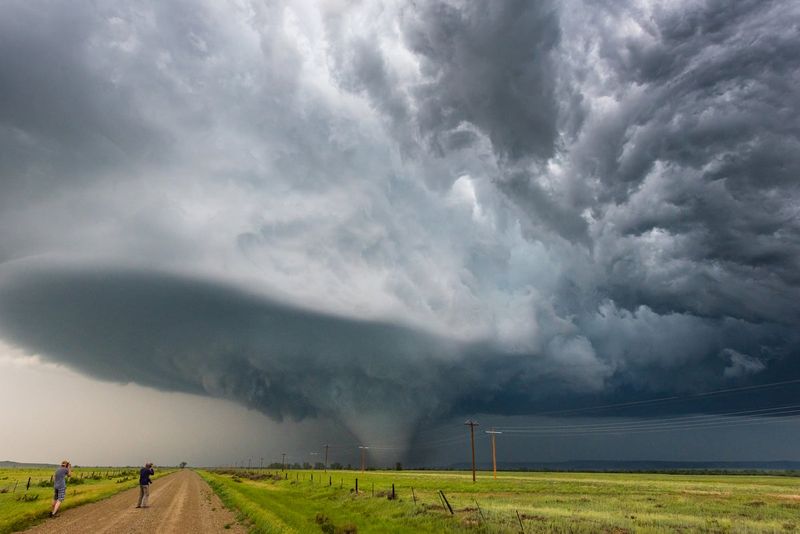
Weather surprises can put a damper on travel plans. Many Americans find themselves caught off guard by sudden rain, extreme temperatures, or unexpected weather patterns.
Such surprises can disrupt outdoor activities, leaving travelers scrambling for alternatives. However, these moments can also lead to spontaneous adventures.
Packing versatile clothing and checking forecasts in advance can prepare travelers for any weather, ensuring that they enjoy their journey regardless of the climate.
16. Health Precautions

Health precautions can be a source of concern for American travelers venturing abroad. Navigating vaccinations, medications, and unfamiliar healthcare systems can be daunting.
These necessary precautions can feel burdensome, yet they are vital for safe travel. Ensuring proper preparations and understanding local health practices can ease anxiety.
By prioritizing health and safety, travelers can focus on enjoying their adventures with peace of mind.
17. Language Misunderstandings

Language misunderstandings often lead to humorous or frustrating situations for American travelers. Despite best efforts, mispronunciations or incorrect phrases can result in confusion.
These moments can lead to unintended consequences or missed opportunities. However, they also provide a chance to connect with locals through shared laughter and learning.
Approaching these interactions with patience and humor can turn potential obstacles into memorable experiences.
18. Time Zone Adjustments
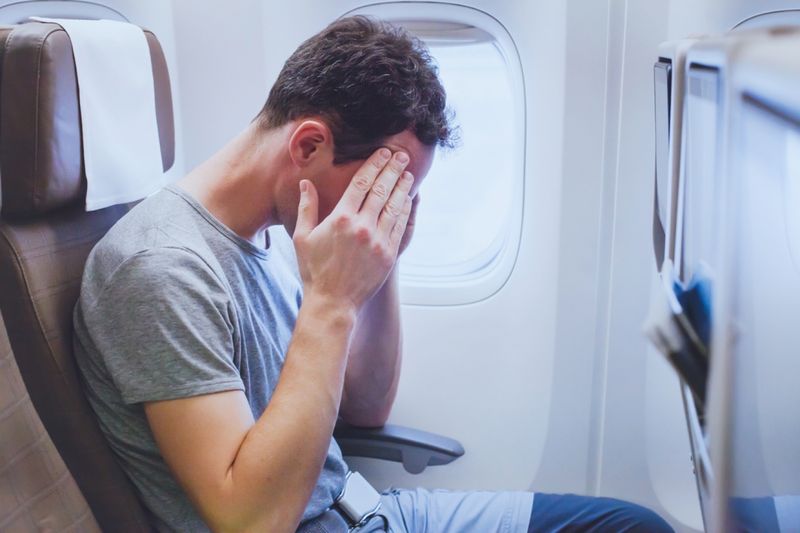
Adjusting to new time zones is a common challenge for American travelers. The shift affects sleep patterns, productivity, and overall well-being.
This adjustment can detract from the excitement of exploring new destinations, leaving travelers weary. However, gradual acclimation and strategic scheduling can ease the transition.
By embracing this change with flexibility and patience, travelers can enjoy their adventures to the fullest.
19. Lack of Familiar Foods

Encountering unfamiliar foods can be daunting for American travelers. Exotic dishes with unknown ingredients may appeal to adventurous palates, but they can also intimidate.
This culinary exploration can lead to surprising discoveries or unsatisfying meals. Being open to new flavors while seeking familiar options can strike a balance.
Embracing local cuisine with curiosity and flexibility can enrich the travel experience, turning meals into memorable adventures.
20. Limited Transportation Options
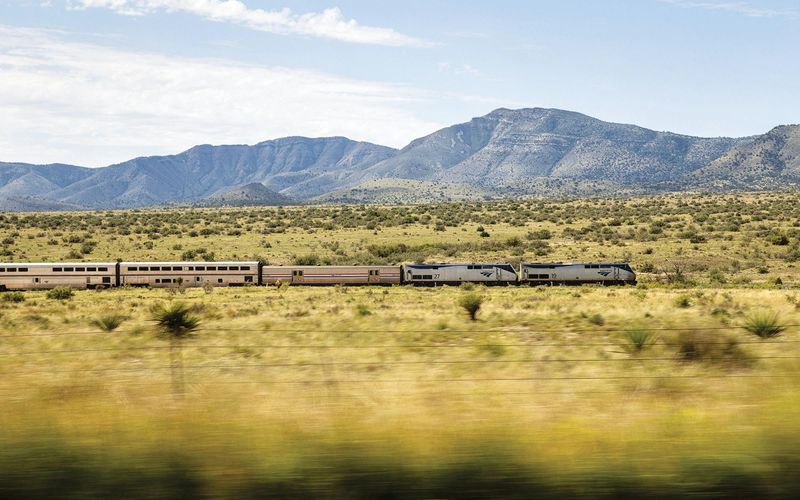
Limited transportation options can hinder travel plans for Americans exploring remote areas. Sparse schedules and unreliable services may lead to delays and missed connections.
These challenges can disrupt carefully planned itineraries, causing stress and frustration. However, they also offer the chance to explore alternative routes or modes of transport.
By remaining adaptable and resourceful, travelers can turn transportation hurdles into opportunities for unique experiences.

